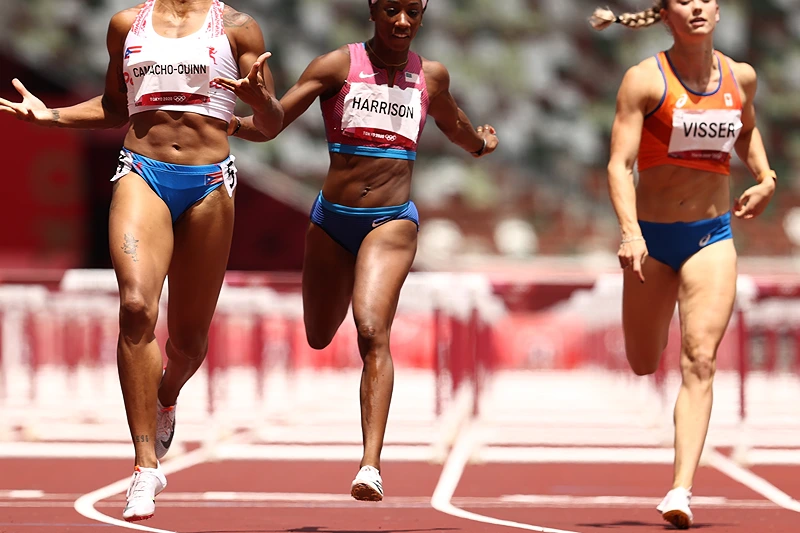
OAN’s Brooke Mallory
5:53 PM – Friday, December 22, 2023
After recently breaking the 300-meter women’s track record at the Rochester Institute of Technology, a transgender athlete provoked outrage.
On December 8th, at a college track and field match at Nazareth University in New York, Sadie Schreiner, whose “dead” name is Camden, surged to victory, setting a new record with a time of 41.80 seconds.
A dead name is the former name of a transgender individual before they transitioned to identify as another gender.
Schreiner had reportedly participated in the men’s division 100-meter race at the same competition a year prior, finishing in 19th place.
Notable women’s sports activist Riley Gaines, a former champion collegiate swimmer who has consistently spoken out against biological men competing in women’s sports, denounced the victory, since it was “set by a male.”
Scientists and sports experts caution that biological men who identify as transgender women have an unfair physical advantage in athletics due to the effects of male puberty and because men have a larger lung capacity.
Schreiner’s victory is just the most recent example of the increasing number of transgender athletes achieving success in women’s sports, even if they never had much success whilst competing with their own biological sex.
Those who believe that Schreiner unfairly benefits from her female status were enraged by her record-breaking performance this month, since the trans athlete’s 300-meter time would only earn “her” 41st place if Schreiner had competed in the men’s division.
“There are numerous documented instances of males competing not just in women’s swimming but also in women’s track, cross country, basketball, volleyball, field hockey, and other sports at all levels of competition,” Gaines said.
Since then, there has been much debate on the topic.
It was first brought up in relation to Cece Telfer, who became the first transgender woman to win an NCAA championship in 2019 when Teffer won first place in the 400-meter hurdles at the Division II National Championships.
Hannah Arensman, another champion athlete whose specialty is in cycling, regretfully stated in April that she would “lose no matter how hard I train” if she had to race against a transgender woman.
“The most important thing is whether or not you have benefited from male development and male puberty, and if you’ve done that, you’re going to have advantages you cannot undo later,” said Tommy Lundberg, a lecturer in physiology at Sweden’s Karolinska Institute.
Stay informed! Receive breaking news blasts directly to your inbox for free. Subscribe here. https://www.oann.com/alerts

